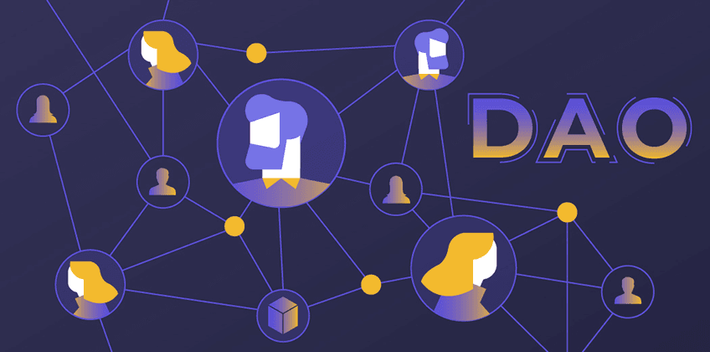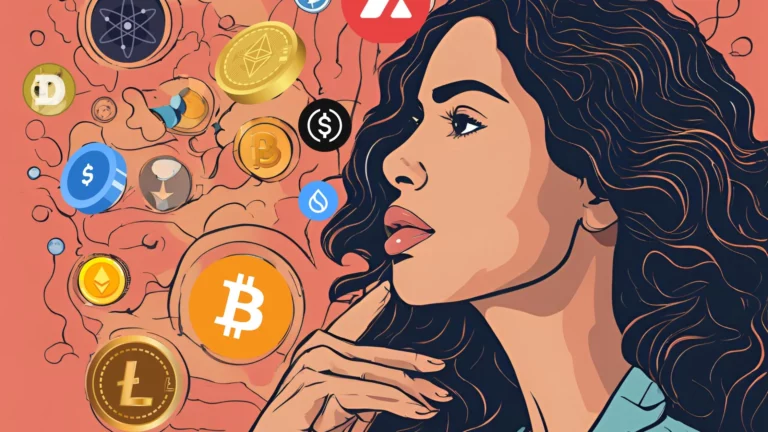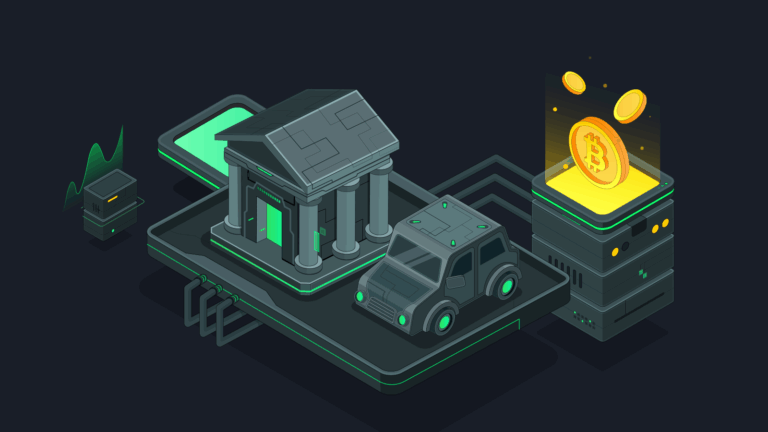
In 2025, the concept of a “company” is being reimagined. Hierarchies, physical offices, even CEOs—none of these are required anymore to build a powerful organization. Enter the DAO: Decentralized Autonomous Organization.
Whether you’re an investor, a founder, or just crypto-curious, understanding DAOs might change the way you think about collaboration, governance, and ownership.
What Is a DAO?
The basic idea
A DAO is an organization run by code, not bosses. Instead of top-down decisions, members use smart contracts and on-chain voting to guide the direction of the project or community.
In simpler terms:
A DAO is like a shared bank account + a voting system + a mission—all governed transparently via the blockchain.
Key ingredients of a DAO
- Smart contracts: automate rules, funding, and workflows
- Governance tokens: represent voting power
- Treasury: the on-chain wallet holding community funds
- Members: often anonymous, but aligned around a shared goal
There’s no need for paperwork or bank accounts. Everything happens on-chain.
What Are DAOs Used For?
Investment
DAOs like The LAO or MetaCartel Ventures pool funds to invest in startups. Members vote on which projects receive capital.
It’s like a VC fund—but democratic, global, and blockchain-native.
Protocol governance
Projects like Uniswap, Compound, and Aave are controlled by DAOs. Token holders vote on upgrades, fees, incentives, and security.
The protocol becomes a public good, owned by its users.
Creator collectives
DAOs like Friends With Benefits (FWB) support artist communities. Members vote on grants, events, and brand partnerships. Creators get both autonomy and shared upside.
Philanthropy
DAOs like Big Green DAO fund social impact projects. Anyone can submit a proposal, and the community allocates capital collectively.
No bureaucracy—just action.
Product building
DAOs like Developer DAO or RaidGuild operate like remote dev studios. People propose projects, form squads, get paid in crypto, and ship products—with no centralized manager.
How Do DAOs Work Technically?
Governance tokens
Each DAO has a native token (e.g., UNI for Uniswap, COMP for Compound). Holding more tokens often means more voting power.
Some DAOs use quadratic voting or reputation systems to avoid whale domination.
Proposals and voting
Anyone can submit a proposal (spending funds, changing a rule, launching a campaign). After discussion on forums or Discord, members vote on-chain. If passed, the smart contract executes it automatically.
Treasury management
DAO funds sit in multi-signature wallets (like Gnosis Safe) or fully automated smart contracts. Spending requires transparent proposals and community approval.
Benefits of DAOs
Global, borderless collaboration
Anyone with an internet connection can join a DAO, contribute, and get paid in tokens or stablecoins. No HR. No borders.
Transparent governance
All proposals, discussions, and votes are public. Compare that to corporate boards where decisions are made behind closed doors.
Community ownership
Members who contribute earn voting power—and in many cases, shared revenue. This aligns incentives over time.
Faster iteration
Without rigid hierarchies, DAOs can pivot quickly, form squads, and experiment at speed.
Risks and Limitations
Voter apathy
Most token holders don’t vote regularly. Proposals may pass with low participation or get manipulated by active whales.
Security
Bugs in DAO contracts or treasury systems can result in hacks or drained funds (see The DAO hack of 2016).
Legal gray area
In many jurisdictions, DAOs aren’t yet recognized as legal entities. This can make taxation, liability, and contracts complex.
However, some regions (like Wyoming, Switzerland, and the UAE) now offer DAO-friendly legal frameworks.
Coordination overload
Without structure, DAOs can become chaotic. Endless debates, unclear roles, or toxic communities can slow progress.
Good governance frameworks are essential.
How to Join or Start a DAO
Step 1: Explore communities
Check out DAO directories like DAOhaus, DeepDAO, or Tally to find active DAOs by category (DeFi, NFTs, social, etc.)
Join their Discord or Discourse forum. Lurk, read, learn.
Step 2: Get tokens (if required)
Some DAOs require governance tokens to participate. Others let you earn reputation through contribution (no token needed).
Step 3: Contribute value
You don’t need permission. Suggest ideas, submit work, join a working group. Most DAOs reward contributors with native tokens or USDC payments.
Step 4: Vote and propose
Once you’ve earned tokens or rep, you can start participating in governance. Read proposals. Join debates. Suggest changes.
The Future of DAOs
- AI x DAO hybrids: Autonomous agents may soon manage DAO tasks, budgets, or even hiring.
- Multichain coordination: DAOs will operate across Ethereum, Cosmos, Solana, etc.
- Legal recognition: DAOs will register as entities, pay taxes, and sign contracts on-chain.
- Mainstream adoption: Brands, NGOs, and even cities are exploring DAO-like models for participatory governance.
DAOs are not a fad—they’re an evolving blueprint for the future of work, community, and capital.







